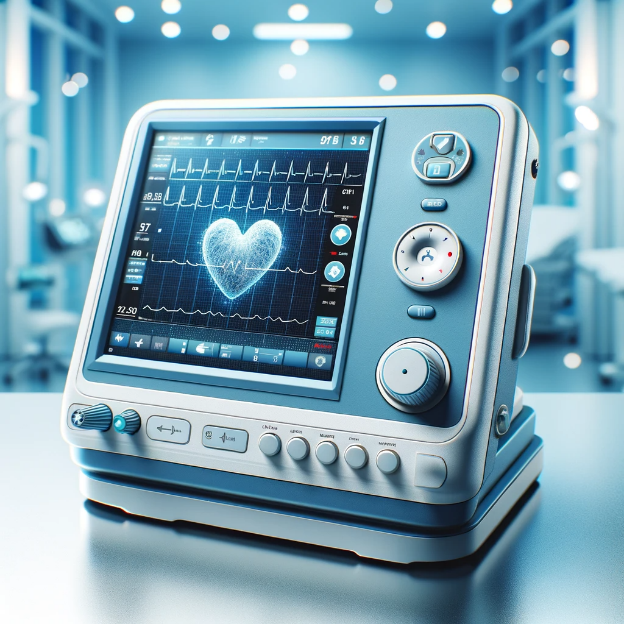I. Introduction
A. Brief overview of medical device regulations and the need for quality standards
The medical device industry operates under strict regulations to ensure safety and effectiveness. These regulations protect public health and ensure devices perform as expected. Medical devices range from simple tools to complex machinery, each requiring adherence to specific quality standards. Without these guidelines, manufacturers risk non-compliance, costly recalls, and even legal penalties. To meet these challenges, companies must implement rigorous quality management practices. Quality standards, such as ISO 13485, help ensure that manufacturers produce safe and effective products while maintaining compliance with global regulations.
B. Explanation of ISO 13485 certification and its significance in the medical device industry
ISO 13485 is the international standard for quality management systems (QMS) in the medical device industry. This certification establishes a framework to ensure that manufacturers consistently produce and control medical devices according to rigorous quality standards. It covers everything from design and production to distribution and post-market surveillance. ISO 13485 certification shows a company’s commitment to product quality and regulatory compliance. Achieving certification helps companies build trust, ensure product safety, and remain competitive in the global market.
C. Importance of ISO 13485 certification for organizations looking to ensure product quality and compliance
ISO 13485 certification is vital for any organization in the medical device sector that wants to ensure product quality and regulatory compliance. Certification helps businesses meet international standards, reduce risks, and improve product safety. It also provides companies with a structured framework for monitoring and controlling processes, allowing them to remain compliant with evolving regulations. For manufacturers looking to expand globally, ISO 13485 offers the assurance that their products meet stringent regulatory requirements in various markets, helping them access new opportunities while maintaining customer trust.
II. Benefits of ISO 13485 Certification
A. Enhanced product quality: Ensuring consistency and safety of medical devices
ISO 13485 certification ensures manufacturers maintain consistent quality in their medical devices. By implementing standardized processes, companies reduce the likelihood of errors and defects. This certification helps manufacturers identify potential risks early and address them before they affect product quality. With rigorous controls in place for design, production, and post-market monitoring, companies can guarantee that their products meet safety and effectiveness standards. Achieving ISO 13485 also improves overall reliability, which builds customer trust and strengthens brand reputation.
B. Regulatory compliance: Meeting local and international regulatory requirements
ISO 13485 helps manufacturers meet both local and international regulatory requirements. The standard’s framework aligns with global regulatory guidelines, including the FDA’s 21 CFR Part 820 in the U.S. and the European Union’s Medical Device Regulation (MDR). By adopting ISO 13485, businesses can simplify the process of ensuring compliance with various regulatory bodies. This certification reduces the risk of non-compliance, regulatory penalties, and market access issues. Achieving ISO 13485 also makes it easier for companies to adapt to changing regulations and maintain ongoing compliance.
C. Market credibility: Building trust with customers, regulators, and partners
ISO 13485 certification significantly boosts a company’s credibility in the medical device industry. Customers, regulatory bodies, and business partners trust certified companies to deliver high-quality, safe products. The certification demonstrates that the organization has implemented rigorous quality management systems and complies with industry standards. For businesses looking to establish or strengthen their position in the market, ISO 13485 certification sets them apart from competitors. It fosters stronger relationships with stakeholders, helping businesses build long-term partnerships and gain customer loyalty.
D. Operational efficiency: Streamlining processes and reducing risks
ISO 13485 certification helps companies streamline their operations by standardizing processes and reducing inefficiencies. The certification encourages manufacturers to adopt best practices in quality management, such as risk management, document control, and continuous improvement. By identifying inefficiencies and areas for improvement, businesses can reduce operational costs and minimize risks. ISO 13485 also facilitates proactive identification and resolution of potential issues, ensuring smooth production and minimizing disruptions. As a result, companies achieve better control over their processes and improve overall productivity.
E. Access to new markets: Gaining a competitive edge in global markets
ISO 13485 certification opens doors to new markets by ensuring products meet international regulatory standards. Many countries and regions require ISO 13485 certification for medical device products to enter their markets. With this certification, manufacturers gain credibility and demonstrate their commitment to quality and safety. Companies that are ISO 13485 certified have a distinct advantage in global markets, as they can more easily meet local regulations and avoid costly delays or barriers to entry. The certification helps businesses expand their reach and capitalize on new growth opportunities worldwide.
III. Key Components of ISO 13485 Certification
A. Quality management system (QMS)
The foundation of ISO 13485 is a robust Quality Management System (QMS). This system helps manufacturers maintain consistent product quality by establishing standardized procedures for every stage of the product lifecycle. The QMS ensures that processes meet quality standards, from design to production and post-market activities. It also fosters a culture of continuous improvement, allowing organizations to enhance product quality and customer satisfaction. A well-implemented QMS helps businesses monitor performance, identify areas for improvement, and address any issues that arise during production.
B. Risk management
Risk management plays a crucial role in ISO 13485 certification. Manufacturers must identify, assess, and mitigate potential risks that could affect the safety, performance, or quality of their medical devices. ISO 13485 requires businesses to adopt a structured approach to risk management, from design and manufacturing to post-market surveillance. By addressing risks early, companies can prevent problems before they affect product quality or lead to regulatory violations. Effective risk management also ensures that products meet safety standards, protecting both consumers and manufacturers from harm.
C. Document control
ISO 13485 emphasizes the importance of document control for maintaining compliance and quality. Companies must establish clear processes for creating, reviewing, and updating documents related to design, production, and quality management. Document control ensures that all records are accurate, up-to-date, and accessible when needed. It also enables companies to trace the history of any product, facilitating audits, inspections, and continuous improvement efforts. Effective document control supports regulatory compliance and helps manufacturers maintain consistent quality across their operations.
D. Internal audits and corrective actions
Internal audits are a vital part of the ISO 13485 certification process. Companies must regularly evaluate their quality management system to ensure it remains effective and compliant with the standard. Audits help organizations identify non-conformities, inefficiencies, and areas for improvement. When issues arise, businesses must implement corrective actions to address the root causes and prevent future occurrences. By conducting thorough internal audits and taking corrective actions, companies can maintain continuous improvement and ensure that their quality management systems are always aligned with industry standards.
E. Regulatory compliance
ISO 13485 helps organizations stay compliant with a range of regulatory requirements. The standard aligns with international regulations such as the FDA’s 21 CFR Part 820 and the EU’s Medical Device Regulation (MDR). Achieving ISO 13485 certification demonstrates that a company’s products meet required safety, performance, and quality standards. It ensures that manufacturers have the necessary processes in place to comply with regulations and reduce the risk of non-compliance. With ISO 13485, businesses can navigate complex regulatory environments and ensure their products are accepted in global markets.
IV. Conclusion
A. Recap of the importance of ISO 13485 certification for medical device manufacturers
ISO 13485 certification is essential for medical device manufacturers seeking to improve product quality, comply with regulatory requirements, and enhance operational efficiency. The certification helps organizations standardize processes, reduce risks, and build credibility with customers, regulators, and partners. By achieving ISO 13485, manufacturers can demonstrate their commitment to safety, performance, and quality, positioning themselves for success in a competitive global market.
B. The value of maintaining a high standard for product safety, quality, and regulatory compliance
Maintaining high standards for product safety and quality is critical in the medical device industry. ISO 13485 certification provides a solid foundation for regulatory compliance, ensuring that products consistently meet safety and performance standards. Companies that maintain ISO 13485 certification enhance their market reputation, reduce operational risks, and remain competitive in the industry. This commitment to quality benefits both consumers and manufacturers, ensuring the continued success of the business.
C. Call to action: Encourage businesses to pursue ISO 13485 certification to enhance their market reputation and ensure consistent quality
For medical device manufacturers looking to improve product quality, streamline operations, and gain market access, pursuing ISO 13485 certification is a critical step. Certification enhances a company’s reputation, builds trust with stakeholders, and ensures compliance with international regulations. Take the first step toward ISO 13485 certification today, and ensure your business is positioned for long-term success in the global medical device market.





